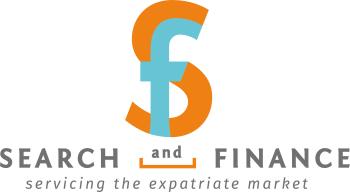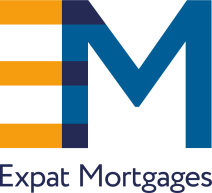
Buying a house or apartment
This page has been updated by our partner: Expat Mortgages
Planning to stay in The Hague for a while? If you're considering a stay of 2 to 3 years, experts suggest that buying a home could be a smart alternative to renting, given the current interest rates and rising house prices. To navigate the local property market and understand the requirements for purchasing a home in the Netherlands, numerous agents and organisations are available to assist you with valuable insights and guidance.
Preparation
When you decide to start your house search in The Hague, it's wise to consult both a mortgage adviser and an estate agent. These professionals can provide valuable advice on your budget, highlight key considerations, assist with the bidding process, and inform you of your rights. Begin by speaking with a mortgage adviser to determine your exact borrowing capacity. With this information, you can then work with an estate agent to find properties that fit within your budget. Keep in mind that the home-buying process in the Netherlands may differ from your home country, so it's beneficial to familiarise yourself with the steps or seek expert guidance to avoid costly mistakes.
Arranging a Mortgage
International buyers can typically secure a mortgage (hypotheek) if needed. Some banks have dedicated advisers for international clients, and several independent brokers offer specialised consultancy services. The amount you can borrow depends on your income, savings, and the property you wish to purchase. Mortgages usually have a term of 20 or 30 years, but shorter terms can be discussed with your mortgage adviser. In the Netherlands, mortgage interest is generally tax-deductible, making homeownership a cost-effective option for many internationals.
Types of Mortgages
Navigating the diverse options in the Dutch mortgage market can be daunting for newcomers. Consult a trusted mortgage adviser to clarify the details and recommend the best solution tailored to your needs. Below, we explore two common mortgage types.
Annuities mortgage (annuïteitenhypotheek)
In the initial years of your mortgage, an annuity plan typically involves lower monthly payments, as you primarily pay interest and only a small portion of the principal. Due to the interest tax deduction, your net payments are generally lower. Over time, as you repay more of the loan, your interest payments will go down. Towards the end of the mortgage term, this balance shifts, resulting in lower interest payments and higher principal repayments. Consequently, your net housing costs may increase slightly since only the interest portion remains tax-deductible.
Linear mortgage (lineaire hypotheek)
A linear mortgage differs from an annuity mortgage in that you repay a fixed amount of the initial loan each month. While you will also pay interest, these payments decrease over time as the principal is reduced. This type of mortgage is ideal if you aim to repay your loan quickly or anticipate a decrease in income over time. However, be aware that initial repayments will be relatively high, and you won't fully benefit from the tax-deductible mortgage interest.
Where to Find Houses for Sale
In The Hague, many estate agents are well-versed in assisting internationals with their housing needs. The Netherlands Association of Estate Agents (NVM) is the largest organisation of housing agents in the country. With about 75% of Dutch house sales conducted through NVM agents, you can trust their expertise. An agent will negotiate on your behalf to find a home that suits your requirements, saving you significant time and effort. Since they work on commission, it's important to check their fees in advance.
When you're ready to begin your search, consider using independent websites like Funda. These platforms offer a wide selection of apartments and houses for sale across the Netherlands. You can easily filter listings by location and budget to find the perfect home for you.
Know What You’re Buying: Freehold or Leasehold
In the Netherlands, properties are sold as either freehold (eigen grond) or leasehold (erfpacht). With a freehold property, you own both the building and the land it stands on. Leasehold properties, on the other hand, come with additional annual costs, as you must pay a fee to the municipality or leaseholder for the right to use the land.
When buying or selling property in the Netherlands, a professional surveyor, representing the buyer, conducts a thorough survey.
Now that you’re prepared to buy a home in the Hague, explore local neighbourhoods, and learn about other cities in The Hague region. You can also find information on moving and purchasing furniture and arranging home insurance, along with other essential steps.













